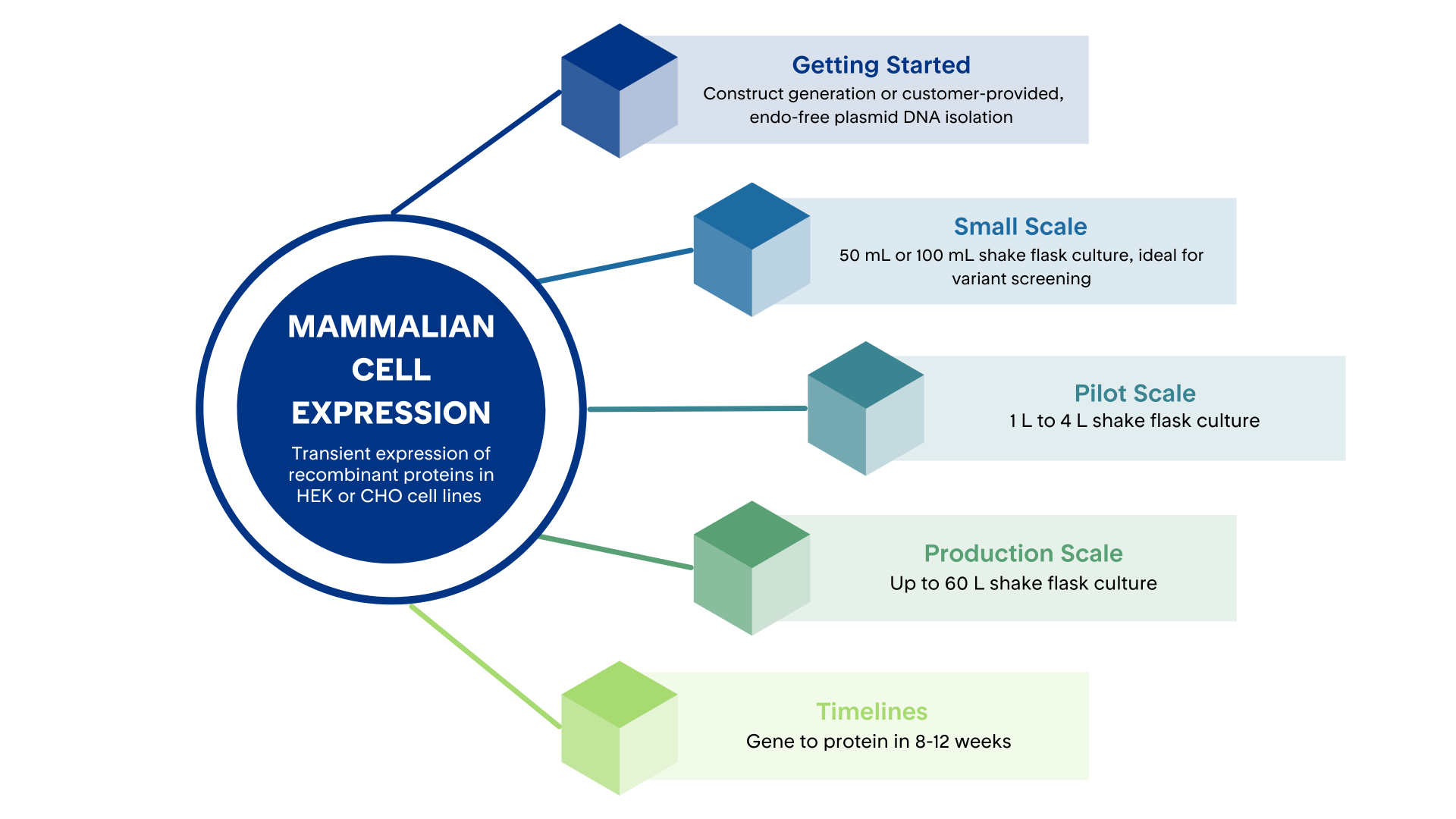Mammalian Cell Expression


Recombinant protein and antibody production in mammalian cells for incorporation of appropriate and often critical post-translational modifications. Offering transient expression in licensed HEK (human embryonic kidney) or CHO (Chinese hamster ovary) cells. Services also include cell line expansion, banking, and transient expression in client-provided cell lines.
Proteos specializes in producing high-quality recombinant proteins and antibodies in mammalian expression systems to ensure essential post-translational modifications. These modifications are critical for proper folding, efficient secretion, and full biological activity—making mammalian expression the preferred choice for downstream applications that demand functional protein.
Transient Expression Platform
Our industry-leading transient expression platform uses fully licensed HEK and CHO cell lines engineered to express Epstein-Barr virus (EBV) nuclear antigen. When transfected with constructs containing the EBV origin of replication (OriP), these cells support high-level episomal plasmid amplification and yield robust recombinant protein expression.
We deliver consistent, reproducible results with fast turnaround using optimized, validated protocols for serum-free shake flask cultures at production scales from 50 mL to 60 L. Protein expression can typically be completed in 2–3 weeks as part of a streamlined 8–12 week gene-to-protein workflow.
A signal sequence is a short amino acid sequence at the N-terminus of a protein that targets a protein to the secretory pathway. After guiding the protein to the ER, the signal sequence is usually cleaved off by signal peptidase enzymes.
Signal sequences are only required for proteins that are secreted or inserted into membranes. Cytosolic proteins typically do not have signal sequences. Click here for additional information.
Testing multiple constructs is helpful when: